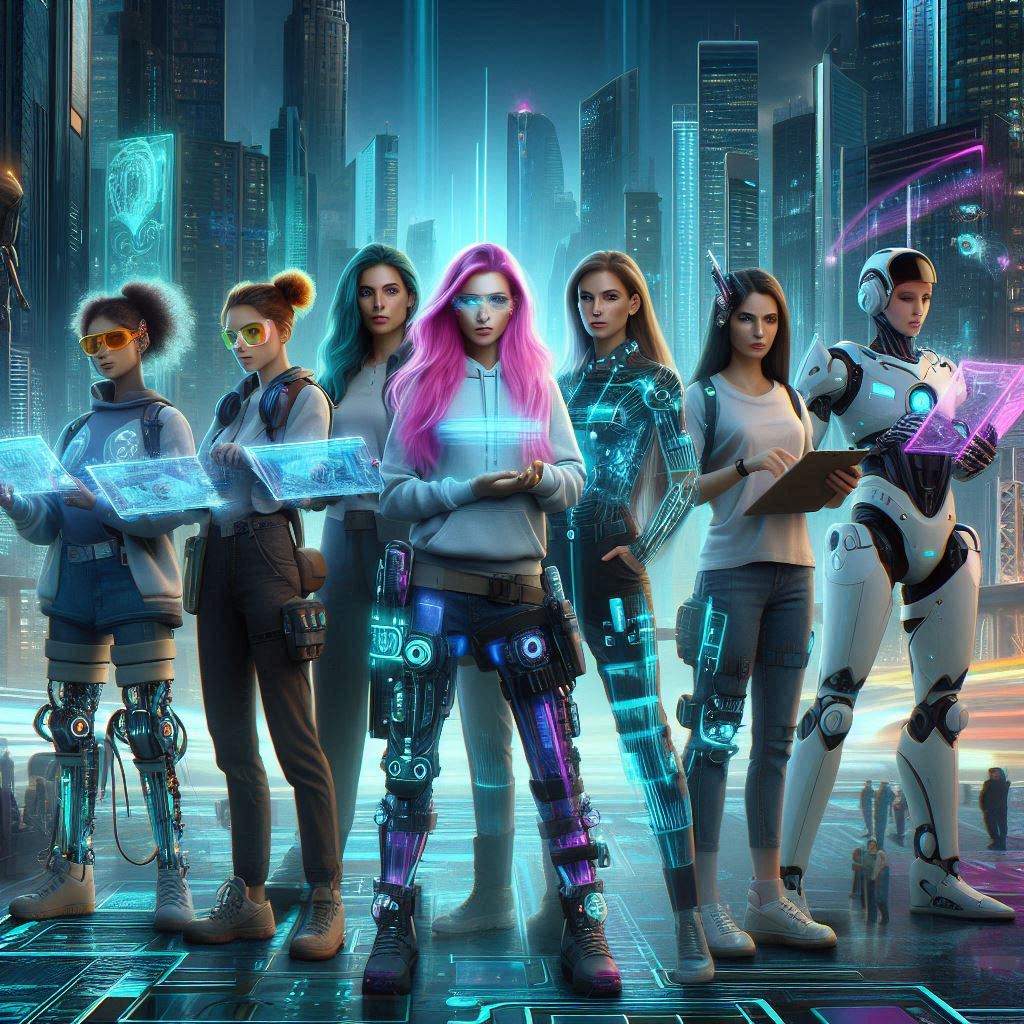In recent years, popular culture has started to showcase a more diverse range of characters in the fields of technology and science. Including more female technologists and scientists as central figures in movies, TV shows, and literature is not just refreshing but necessary. It is very. important for encouraging girls to explore and pursue careers in technology, a sector where women have been underrepresented for decades. Through the lens of popular media, we can examine how the portrayal of women in tech roles serves as a beacon of inspiration and empowerment for young girls and aspiring female technologists.
Breaking Stereotypes in Movies and TV Shows
Hollywood and the television industry have traditionally depicted the tech world as male-dominated. The narrative is changing. Movies and TV shows are beginning to highlight female characters who are smart, confident, and successful in tech roles. These portrayals break down the stereotypes that have long hindered women’s participation in STEM (Science, Technology, Engineering, and Mathematics) fields.
Female characters like Shuri from Marvel’s “Black Panther,” who is not just a princess but also an ingenious engineer and technologist, or Penelope Garcia from “Criminal Minds,” a brilliant computer expert, are breaking the mold. They demonstrate that women are equally capable of inventing revolutionary technology and solving complex problems. By presenting these characters as relatable and aspirational figures, the media plays an instrumental role in challenging the outdated notion that tech is a male prerogative.
Literature: A Source of Inspiration and Empowerment
Literature serves as a potent source of inspiration and empowerment, particularly in its portrayal of female technologists as protagonists. Books and novels wield significant influence in shaping the perspectives and aspirations of readers, offering immersive journeys that expand one’s sense of possibility. Female authors, in particular, are driving forces in this movement, crafting narratives that place women in tech at the forefront of their stories.
These literary works often delve into the real-world challenges that female technologists encounter, such as gender bias and the struggle for recognition in male-dominated fields. Yet, they also showcase the resilience, intellect, and ingenuity of their protagonists, delivering a resounding message to readers that women can thrive in technology-related roles.
Literature has the capacity to ignite the imagination and instill a sense of possibility in its audience. When readers immerse themselves in stories featuring female technologists as central figures, they are exposed to a narrative that challenges stereotypes and expands their understanding of what women can achieve in STEM fields. This exposure can be particularly impactful for young readers, shaping their perceptions of gender roles and inspiring them to pursue careers in technology and science.
Impact on Aspiring Female Technologists
The positive portrayal of women in tech roles across movies, TV shows, and books has a tangible impact on the audience, particularly young girls and women contemplating careers in technology. Seeing female characters who are valued for their intellect, creativity, and problem-solving skills can inspire girls to develop an interest in STEM subjects from a young age. These portrayals help dismantle the psychological barriers and societal expectations that might deter women from considering a future in technology.
The visibility of female technologists in media serves as a counter-narrative to the pervasive stereotypes and biases that often discourage women from pursuing careers in STEM fields. It reinforces the idea that women belong in tech, contributing to a shift in perception both within and outside the tech industry. As more girls grow up seeing themselves reflected in these empowering roles, the gender gap in technology can begin to close, leading to a more diverse, innovative, and inclusive future in tech.
The Role of Pop Culture in Shaping Perceptions
Pop culture wields significant influence over societal norms and perceptions, particularly in shaping attitudes towards gender roles in fields like technology and science. Through mediums such as movies, TV shows, and literature, pop culture can actively normalize the presence and success of female technologists and scientists, thus contributing to a shift in societal perceptions.
Spotlighting female protagonists who excel in STEM (Science, Technology, Engineering, and Mathematics), helps pop culture narratives challenge traditional stereotypes and showcase the diverse capabilities of women in these domains. Characters like Dr. Ellie Sattler in “Jurassic Park” or Dr. Joan Watson in “Elementary” demonstrate intelligence, expertise, and leadership in scientific or technological pursuits, subverting the notion that these fields are exclusively male-dominated.
Pop culture representations not only reflect changing attitudes but also have the potential to inspire real-world impact. When young audiences see relatable and aspirational female characters succeeding in STEM, it can instill confidence and ambition in girls who aspire to pursue similar careers. This phenomenon is often referred to as the “role model effect,” where exposure to successful role models within media can positively influence career aspirations and self-perception.
There’s a growing emphasis on the importance of diverse and inclusive storytelling. Media creators are increasingly cognizant of the need to represent a broad spectrum of identities and experiences, including those of women in STEM fields.
The Future of Female Representation in Tech Media
The trajectory of female representation in tech roles within media is promising. With a growing awareness of the importance of diversity and inclusion in all sectors, including technology, we can expect to see even more nuanced and empowering portrayals of women in these fields.
This representation impacts aspiring female technologists and also influences the broader societal view of women’s roles in technology and science. As more diverse and positive images of female technologists permeate pop culture, they lay the groundwork for a world where girls and women see no limits to what they can achieve in technology.

